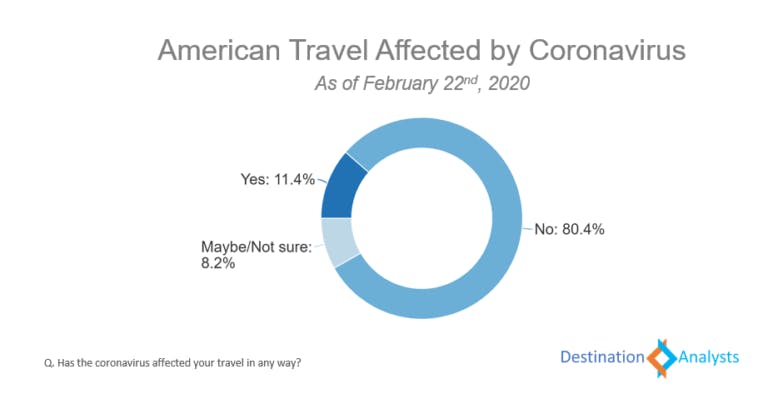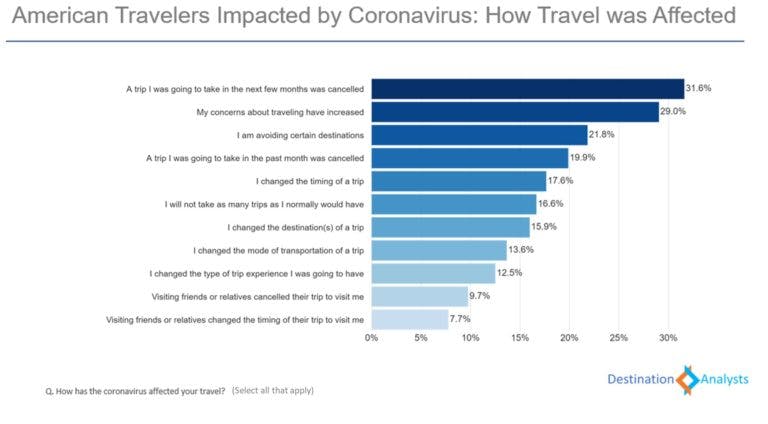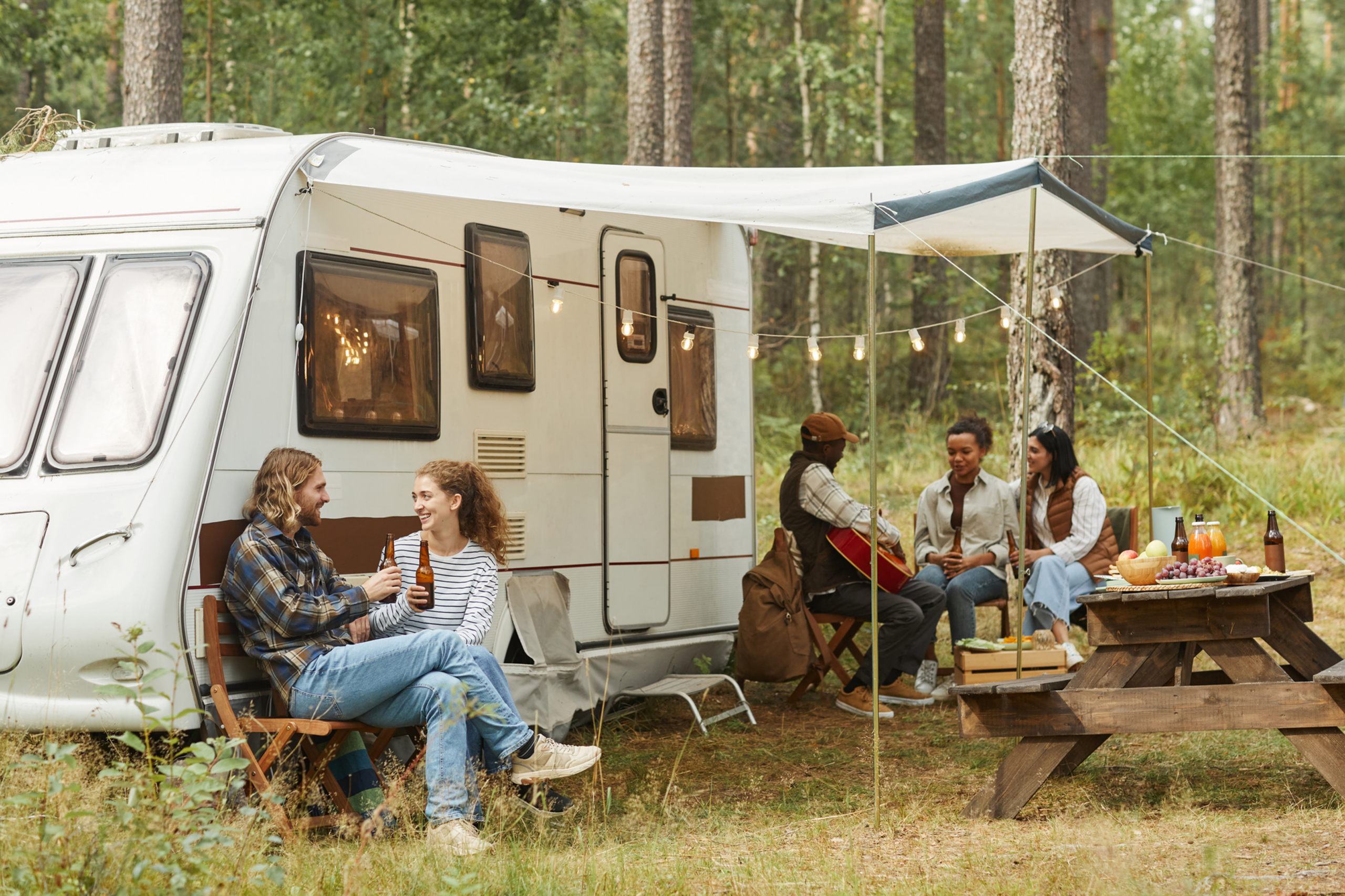Between February 19th and 21st, Destination Analysts fielded a survey to a random sample of American travelers which, among other topics related to their travel, inquired about the impact of the coronavirus on their current and future travel plans. During this (now relatively blissful) period, the virus had not yet had such an extensive global reach. There were only a few cases of coronavirus in the United States and no related deaths. With a few exceptions, most international and domestic flight service was near normal levels. Italy was amongst the top foreign countries Americans wished to visit.
Although there has been a rapid change in circumstances (as pandemics tend to do), looking at American travelers’ response to coronavirus at that time gives us some view into the scale of its ultimate impact.
During those few days in late February, 11.4 percent of American travelers said that the coronavirus had affected their travel in some way. Another 8.2 percent felt unsure. Being younger and having children appeared to be key factors in whether one was impacted: 20.1 percent of Gen Z travelers said their travel was affected, compared to just 8.0 percent of Boomers. Those with children under the age of 18 in their household were more than twice as likely to say their travel was affected compared to those without kids (18.4% vs. 7.9%)

For those who said their travel was in some way impacted by coronavirus, we asked a follow up question as to how. As shown in the accompanying chart, most commonly a trip that was planned for the subsequent few months had been cancelled, and concerns about traveling had increased. Also note that at the time, one-in-five of these travelers who were affected said a trip that had been planned in the previous month had already been cancelled.

Interestingly, how an American traveler was impacted varied greatly by age. Millennial and Gen Z travelers were much likelier to say a trip in the coming months had been cancelled compared to Baby Boomer travelers ( 42.4% vs. 15.5%). Older travelers were likelier to express increased concern about traveling (55.6% of impacted Boomers compared to 12.1% of impacted GenZ and Millennial travelers). Well over half of Baby Boomer travelers who felt that their travel had been impacted by coronavirus said they were avoiding certain destinations; comparatively, less than 10 percent of impacted younger travelers felt that way. Millennial travelers also appear largely unwilling to give up travel—just 6.8 percent of those travelers whose plans were affected by coronavirus said they “will not take as many trips as I normally would have.”
The study of the changing extent and impact of the coronavirus on travel and the travel industry is, of course, ongoing. To our clients and industry partners, please be assured we will update you as much and as often as we can.





